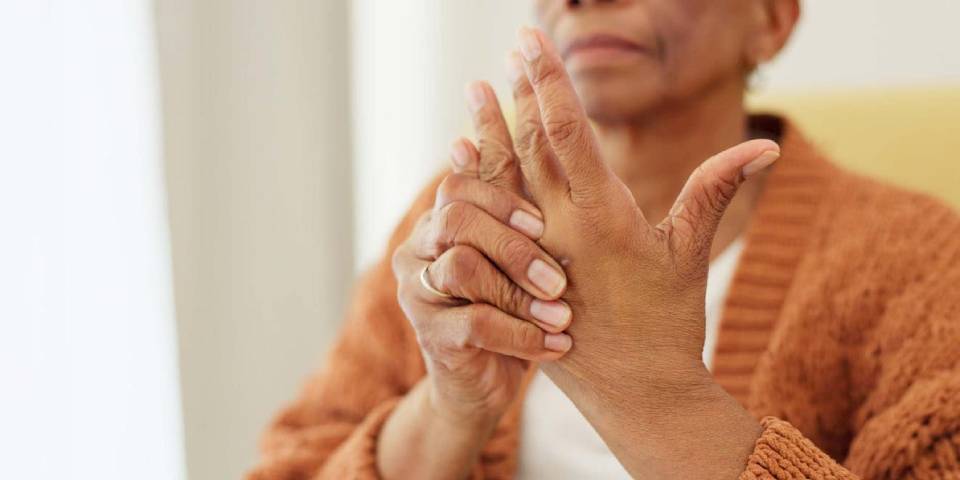
- 22/11/2024
- Dr. Ashwini Gaurav
- 0 Comments
- Blog
How do I know if I have Rheumatoid Arthritis?
Rheumatoid arthritis (RA) is more than just joint pain—it’s a condition where your immune system attacks your own body. In India, about 7 million people are affected by RA, and many might not know they have it. If you’ve been feeling joint pain, swelling, or tiredness that doesn’t go away, you might be wondering if something more serious is going on. While some pain is normal, if these symptoms keep happening or get worse, it could be a sign of RA. Getting checked early is important, and seeing a doctor like Dr. Ashwini Gaurav, a well-known orthopedic specialist in Patna, can help you understand your condition better. In this blog, we’ll explain the common symptoms, risk factors, and what steps to take if you think you might have rheumatoid arthritis.
What Is Rheumatoid Arthritis?
Rheumatoid arthritis (RA) is an autoimmune condition, which means your immune system mistakenly attacks healthy tissues in your body, particularly your joints. Unlike osteoarthritis, which is caused by wear and tear over time, RA often begins in people between the ages of 30 and 60. It can also affect other body systems, such as the lungs, heart, and eyes, making it more than just a joint issue.
Common Symptoms of Rheumatoid Arthritis:
Here are the key signs that may indicate you have RA:
- Joint Pain and Stiffness: One of the main signs of RA is joint pain that tends to be worse in the morning or after long periods of inactivity. This stiffness can last more than 30 minutes and typically affects both sides of your body (e.g., both wrists or both knees).
- Swelling and Redness: Inflammation in the joints caused by RA leads to noticeable swelling, warmth, and sometimes redness. This can make movement uncomfortable and limit your range of motion.
- Fatigue: If you’re feeling unusually tired or fatigued, despite getting enough rest, it could be a sign of RA. Fatigue is common in many autoimmune diseases and can sometimes be overwhelming.
- Fever and Weight Loss: RA can cause a low-grade fever and unintended weight loss. If these symptoms are paired with joint pain, it may signal an inflammatory process in the body.
Who Is at Risk for Rheumatoid Arthritis?
While RA can affect anyone, certain factors increase the likelihood of developing it:
- Age: RA most commonly affects people between the ages of 30 and 60, although it can occur at any age.
- Gender: Women are more likely than men to develop RA.
- Family History: If you have a close relative with RA, your risk of developing it may be higher.
- Smoking: Smoking has been linked to an increased risk of RA, especially for those with a genetic predisposition.
What to Do if You Suspect You Have Rheumatoid Arthritis?
If you’re experiencing symptoms that suggest RA, it’s important to consult with a healthcare provider. The first step is to see a general physician or rheumatologist, who will:
- Perform a physical exam to check for signs of joint inflammation
- Ask about your symptoms and medical history
- Order blood tests to look for markers of inflammation
- Use imaging tests like X-rays or ultrasounds to assess joint damage
Treatment Options for Rheumatoid Arthritis:
While there is no cure for RA, treatment has improved significantly in recent years. Common treatment options include:
- Medications: Disease-modifying antirheumatic drugs (DMARDs), biologics, and nonsteroidal anti-inflammatory drugs (NSAIDs) are often prescribed to manage symptoms, reduce inflammation, and prevent joint damage.
- Physical Therapy: Exercises to strengthen muscles around affected joints and maintain flexibility can improve movement and function.
- Surgery: In more severe cases, joint replacement or other surgical interventions may be necessary to improve function and reduce pain.
If you’re experiencing symptoms of rheumatoid arthritis, getting an accurate diagnosis and starting treatment early is crucial. Dr. Ashwini Gaurav, known for providing the best arthritis treatment in Patna, can help you understand your symptoms and guide you toward the right treatment options. Don’t wait—book an appointment today and take the first step toward better health and an improved quality of life.

